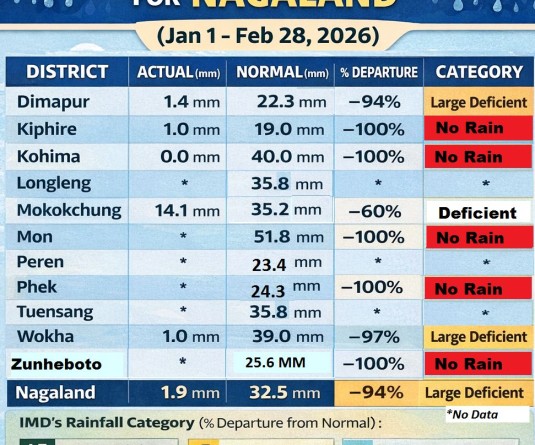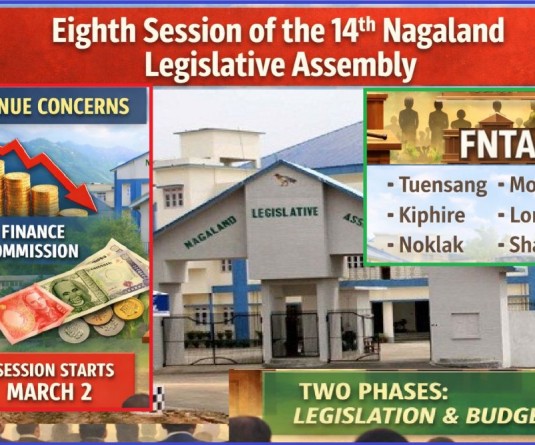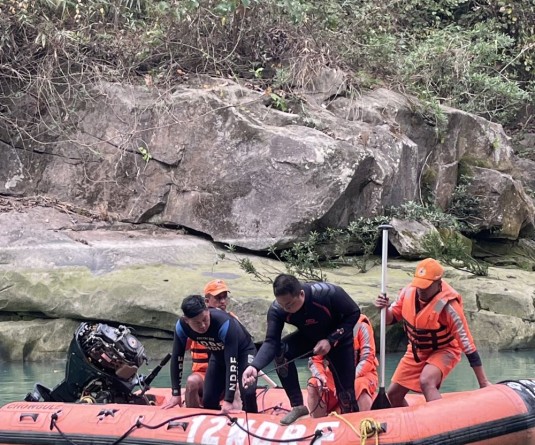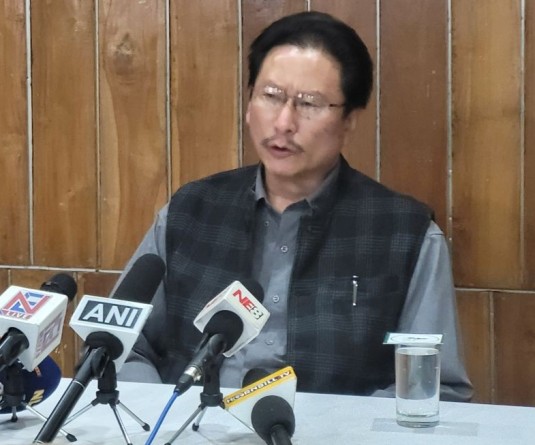
Kohima, March 15 (MExN): With human trafficking set to overtake drug trafficking as the second most profitable illegal industry, a Consultative Meeting on Human Trafficking in Nagaland affirmed the need for a collective effort to fight it. The Consultative Meeting was held at the Capital Convention Centre, Kohima on March 15 and was jointly organized by the Nagaland State Social Welfare Board, State Resource Centre for Women and ARZ (Anyay Rahit Zindagi), Goa.
Dellirose M Sakhrie, Additional Secretary to the Government of Nagaland called for a “multi sectoral approach” to prevent human trafficking. She urged NGO’S, civil bodies and government agencies to come together and work on this issue. In her keynote address, Sakhrie expressed dismay over the alarming rise in human trafficking and stated, “We need to address the impending issue with priority, concern and attention.” She informed that North Eastern states have become a “hotspot” for human trafficking and pointed to reports of young children from neighboring states being sold off as domestic helpers in the state. Sakhrie added these were clear indications on the spread of trafficking rackets all across the state. She said that there is evidence of well organized network groups operating in the state and called for a collective effort from all sections in order to curb this crime.
Arun Pandey, Director of ARZ, Goa stated, “Human Trafficking is a global phenomenon and most parts of India are affected due to this problem and unfortunately Nagaland is also one of the States from where children and girls have been trafficked to Goa, Mumbai, Chennai, Rajasthan”.
He said that the geographical boundary is a major challenge for the prevention of trafficking.
While highlighting how traffickers had adopted a new form of ‘Modus Operandi’ through various forms of Media and communication, Pandey added, “the purpose of this meeting is to connect the service providers, share the challenges faced, share ideas to curb the menace and have a more detailed knowledge on ‘Stop Trafficking Portals’.”
Officer on Special Duty, Department of Women & Child Development Maharastra, Jayant Pawanikar stressed on the support required by the agencies in Nagaland for the repatriation and rehabilitation of the victims of Commercial Sexual exploitation and prosecution of trafficking. Pawanikar pointed out that sex tourism was overtaking brothel based production, stressing on the need for proper sensitization of the various agencies in Nagaland.
Filip Sumi, a senior reporter with The Morung Express sharing a Media Perspective on Human Trafficking lamented that the media does not follow-up on cases after initial reports are published. He pointed out that the media gets involved only as informational partners of governmental institutions and not as active partners. He added, “Media has a large role to play in mobilizing public support. The ability to mould public opinion makes the media a powerful tool of social change. Investigative journalism on trafficking should be encouraged and promoted.”
He further stated, “The media should take into consideration certain approaches and ensure that there is no violation of the rights of the victims.” Stating the media should amplify the message, he said, “If we are all part of the problem, let’s all be part of the solution.” He stressed on the need for the media to step up campaigns and help mitigate the rising levels of such illegal activities. He called upon the delegates to use this meeting as a start towards a strong result-oriented campaign against human trafficking.






